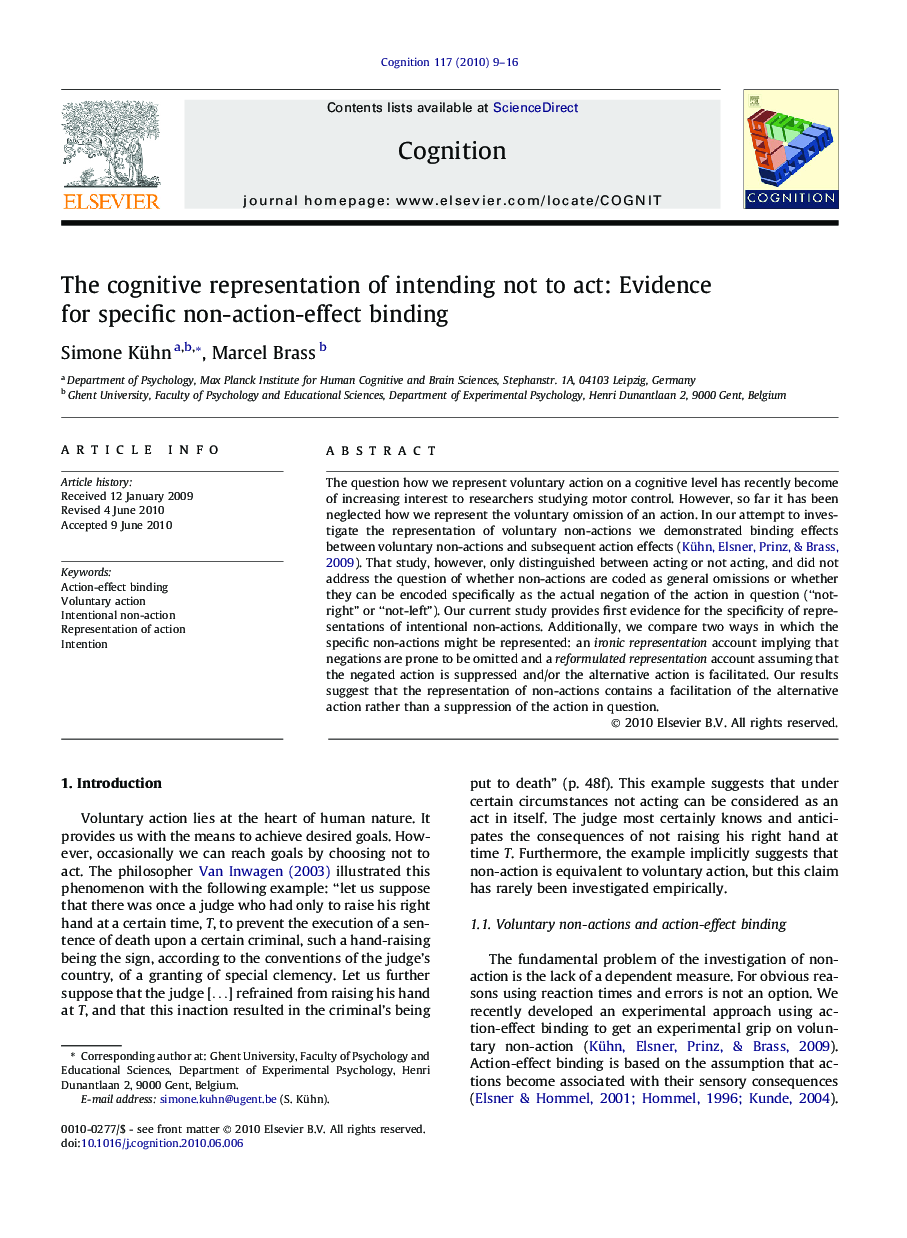| Article ID | Journal | Published Year | Pages | File Type |
|---|---|---|---|---|
| 927115 | Cognition | 2010 | 8 Pages |
The question how we represent voluntary action on a cognitive level has recently become of increasing interest to researchers studying motor control. However, so far it has been neglected how we represent the voluntary omission of an action. In our attempt to investigate the representation of voluntary non-actions we demonstrated binding effects between voluntary non-actions and subsequent action effects (Kühn, Elsner, Prinz, & Brass, 2009). That study, however, only distinguished between acting or not acting, and did not address the question of whether non-actions are coded as general omissions or whether they can be encoded specifically as the actual negation of the action in question (“not-right” or “not-left”). Our current study provides first evidence for the specificity of representations of intentional non-actions. Additionally, we compare two ways in which the specific non-actions might be represented: an ironic representation account implying that negations are prone to be omitted and a reformulated representation account assuming that the negated action is suppressed and/or the alternative action is facilitated. Our results suggest that the representation of non-actions contains a facilitation of the alternative action rather than a suppression of the action in question.
